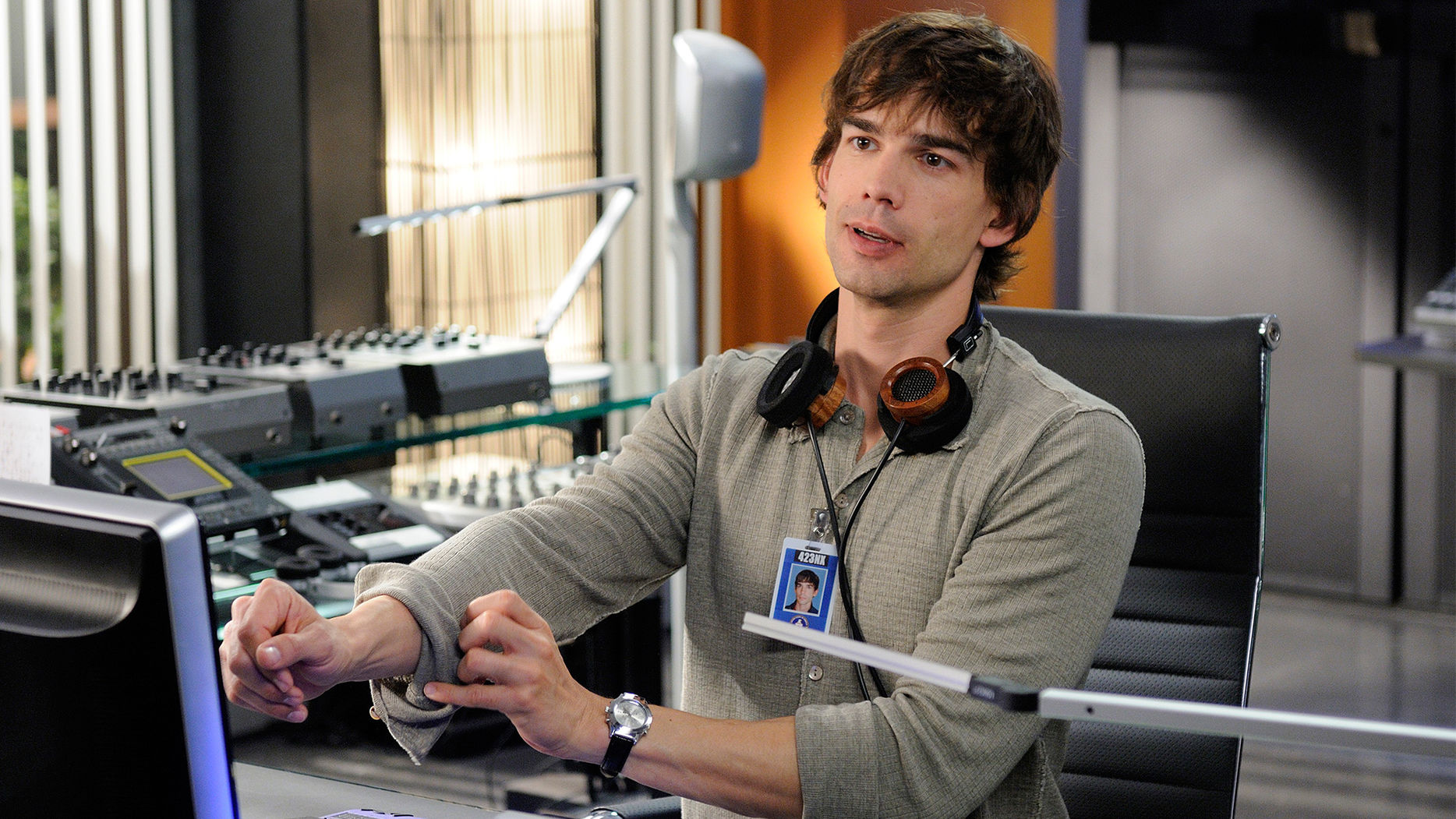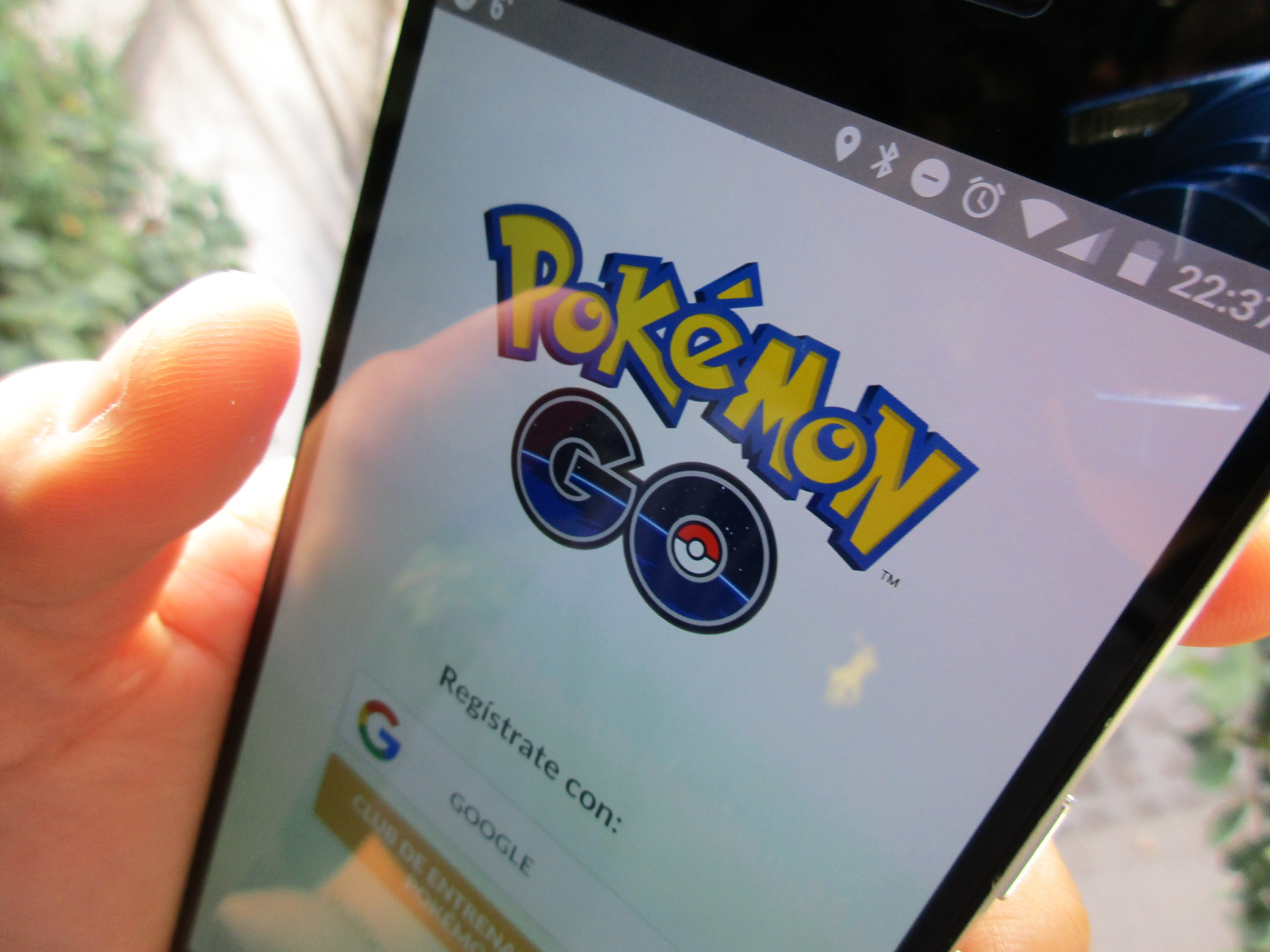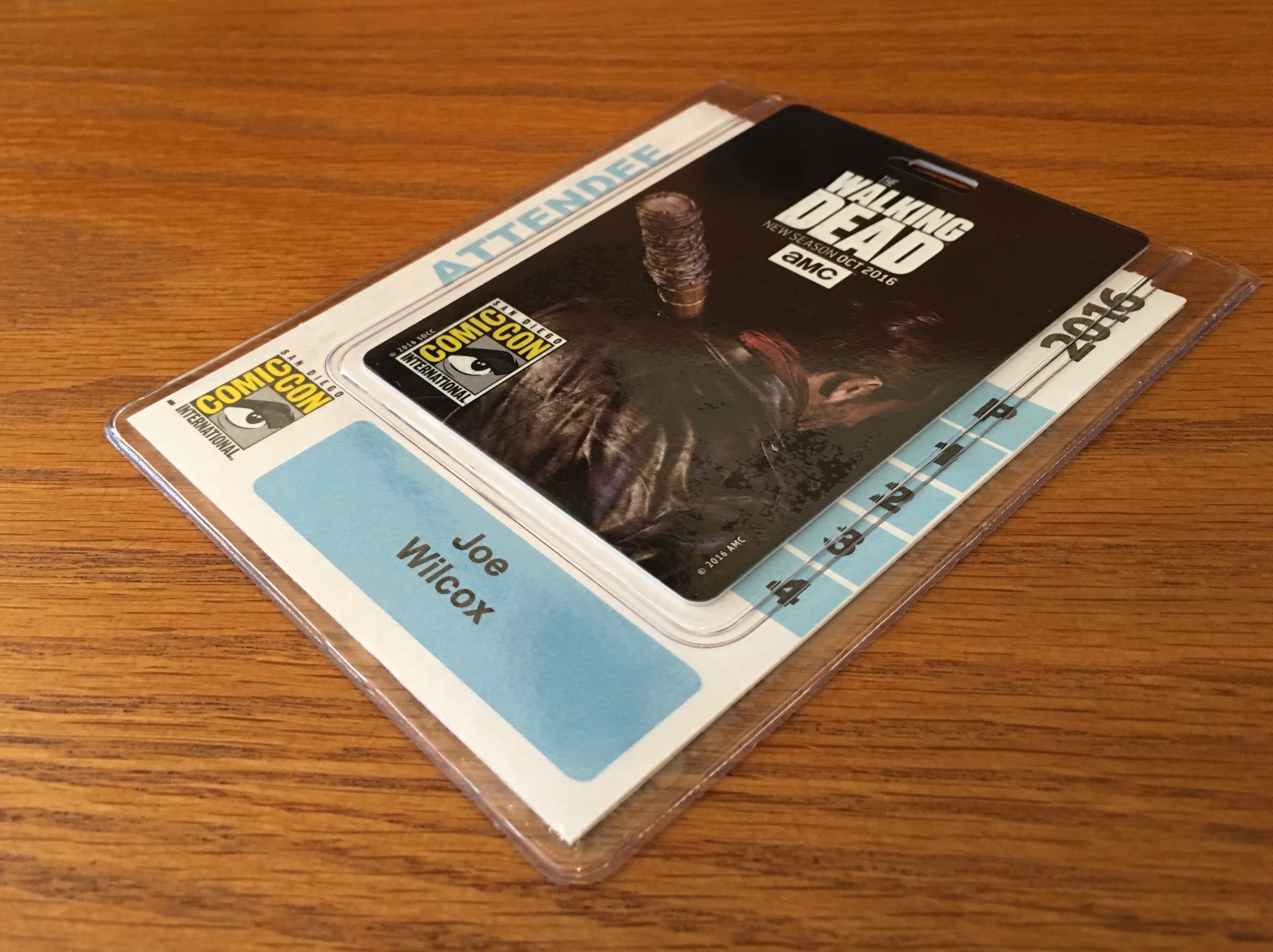I spent today, with my daughter, at San Diego Comic-Con 2016. Finally. My praise to the organization for providing shockingly accessible accessibility services for the temporarily or permanently disabled. Because of corrective eye surgery two days ago, I fit the category for this Con, and hopefully none other. SDCC graciously gave Molly an onsite pass to be my attendant. In introduction, my impaired vision frames an unexpected encounter with Christopher Gorham.
When the surgical procedures are complete, I expect to have as good eyesight as my youth, but without the need for glasses. I wore a pair of dummy ones today, to protect the operated-on right eye (e.g. plastic with no prescription applied to them). Thus, the left eye is a complete blur without a corrective lens. On the right, my vision for things far away is exceptional. But my personal space, out to about a meter, is blurred out; my visual range will normalize sometime after the dilated pupil normalizes. So, yeah, Molly’s assistance is helpful.











